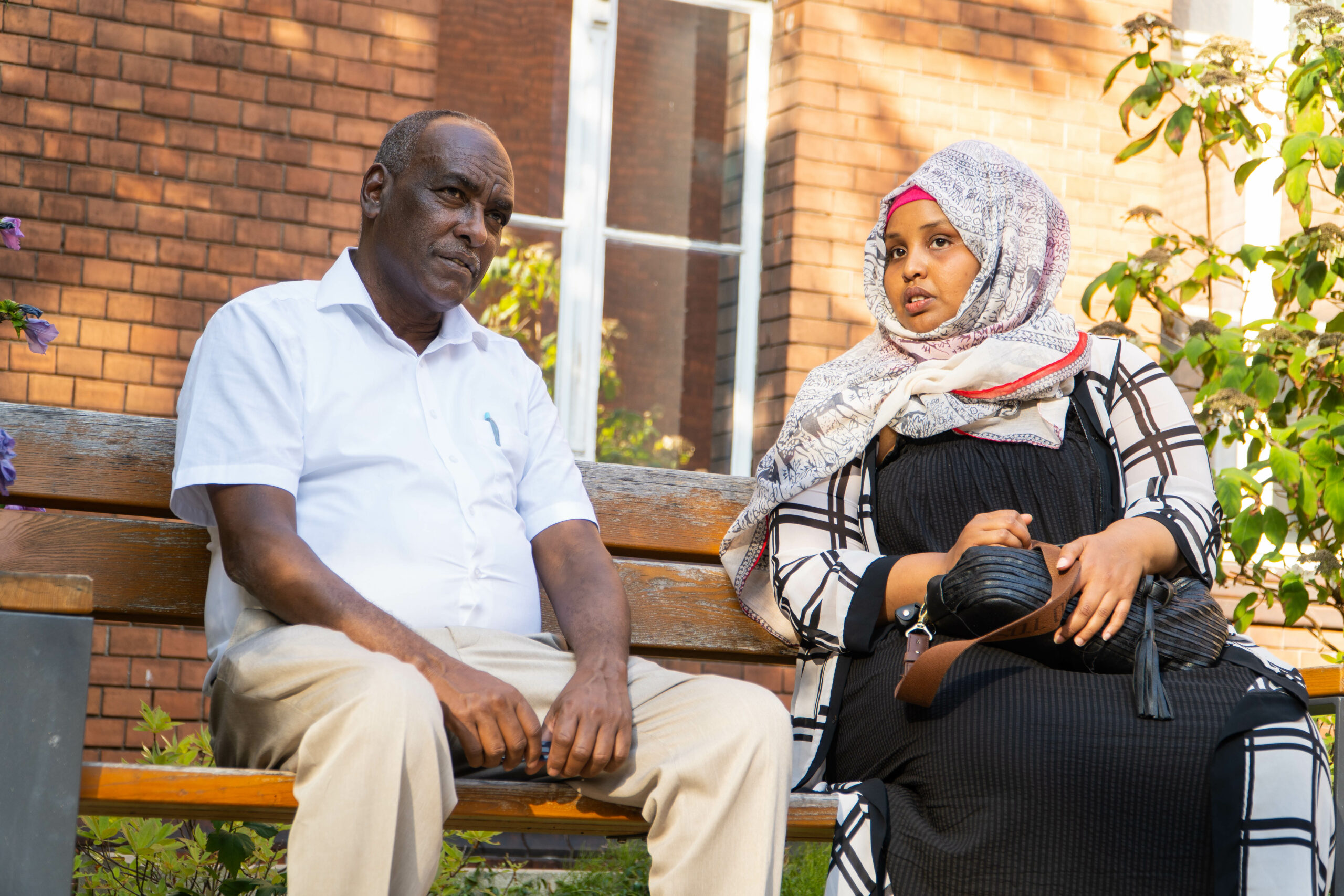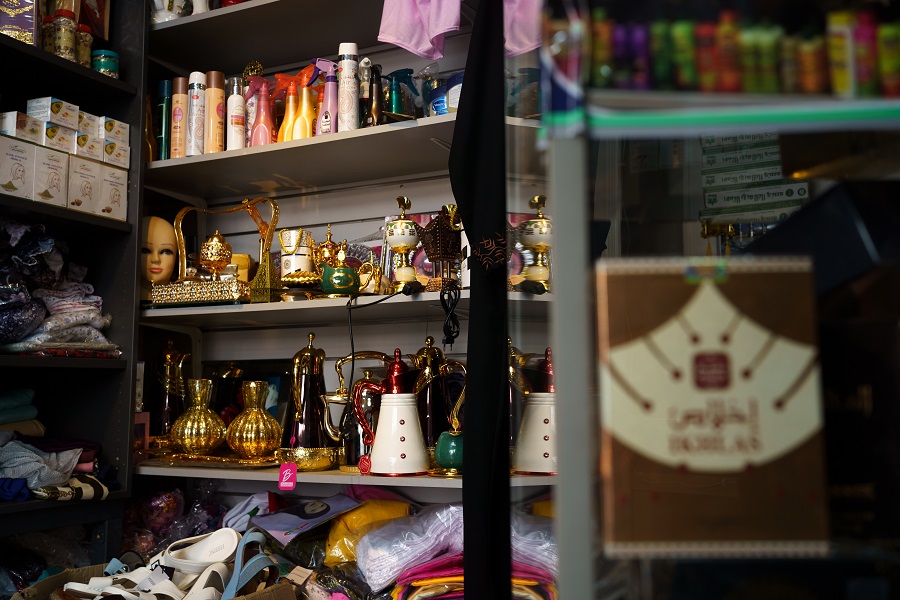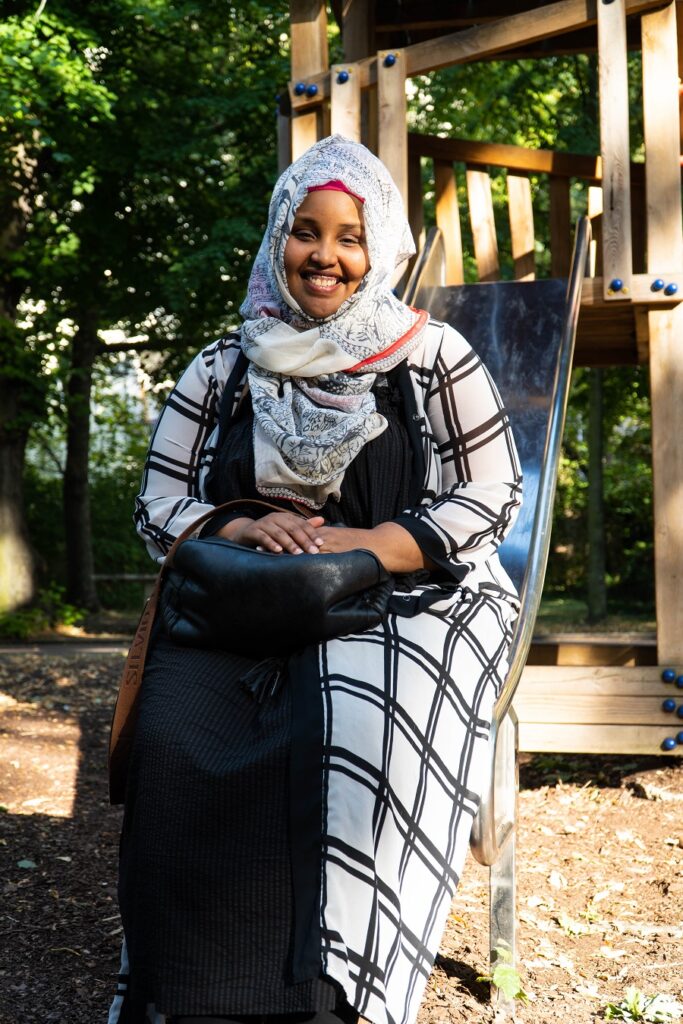Somali refugees in Germany strive to leave old practices behind

By Megan Cheah
Ms Habon Saad Jabeil was a child when her parents in her hometown of Afgoye in Somalia had her undergo what was a rite of passage for girls in the country.
Both her sisters, female relatives and friends had undergone the same procedure which many Somali women refer to as “female circumcision”.
“Our parents thought it would protect us and make us perfect girls who would stay home with no feelings,” said Ms Saad Jabeil, 25. She now works as a customer service operator in Berlin.
“Female circumcision”, also known as genital mutilation, refers to a procedure where the female genitalia is deliberately excised for no medical reason.
It is common in several African countries, such as Somalia, Guinea and Djibouti. According to the United Nations, over 90 per cent of Somali women have undergone the procedure for ‘hygiene and chastity purposes.’
But the painful process, which can cause long-term problems during sex and childbirth, has been criticised by human rights organisations who deem it as violence against women and children.

Ms Habon Saad Jabeil came to Berlin in 2014. She said the Somali shops in Wedding, Berlin only sprung up in the past two to three years, but she is happy to have a place to buy clothes and beauty products from her country.
PHOTO: KOLETTE LIM
These organisations aim to put a stop to the practice by educating these communities about the impact of female genital mutilation.
Many Somali women, including Ms Saad Jabeil, have moved to Europe to escape a patriarchal society. Besides genital mutilation, other traditional practices, such as arranged child marriages, are still common in the east African nation.
When Ms Saad Jabeil was 15, she would sometimes lose control of her arms and legs and have fainting spells that the doctors in her hometown could not diagnose.
Her worried parents sent her to shamans who performed healing rituals. In these sessions, she had various concoctions forced down her throat and was subjected to electric shocks. The shamans said she was possessed.
“Even when I said stop, they would say, ‘This is not her, this is the shaitan (devil) speaking.’ But I was still me,” she said.
She was 17 when her relatives sent her to Europe for another medical opinion. It took another two years before doctors in Berlin told her that her epileptic-like fits were caused by psychological factors.
Spreading the word in Germany
There are about 1,200 Somalis in Berlin and Brandenburg, most of whom are refugees.
Some women left because of gender-based issues, said Mr Osman Abubaker, 64, chairman of the Somali Culture and Help Association.
“Female genital mutilation is generally not affiliated with any kind of religion. It is just a type of old custom that people still follow,” he added. The practice is illegal in Germany.

Ms Saad Jabeil has lived in Berlin since 2014 and juggles two jobs as a customer service operator and school clerk.
PHOTO: BRANDON CHIA
However, Berlin-based women’s rights organisation Terre des Femmes, which is French for ‘Women’s Earth’ and aims to end genital mutilation worldwide, calculated that as of 2019, about 10,579 Somali women in Germany have undergone it. An estimated 4,207 Somali girls under 18 in the country are at risk.
Although there are no confirmed cases of mutilation being performed in Germany, girls from Somalia and other African communities are often flown back home or to other European cities for the procedure, said Ms Sonja Störmer, 39, a policy specialist at the organisation. “In Paris or Amsterdam, where there are very big diaspora communities, it still happens.”
Terre des Femmes works together with these communities to spread the word that mutilation is illegal and must stop.
In 2019, it launched its first men-focused initiative, Men Standing Up for Gender Equality, where it trained 30 African men in Berlin, Hamburg and Paris to raise awareness of early and forced marriage and mutilation harms.
One of them, Mr Abubaker said the community elders used the knowledge gained to educate the community in Berlin on the legal, religious, social and health issues of genital mutilation.
But there is still a long way to go before the Somali community shakes off the customs that have been deeply ingrained.

The 1,200 Somalis living in Brandenburg and Berlin, Germany, frequent the two Somali shops that import spices, beauty products, cosmetics and clothes from Somalia and its neighbouring countries in Africa.
PHOTO: KOLETTE LIM
Ms Saad Jabeil has come to terms with the traditional rituals she was subjected to as a child and accepted that her parents did not have a choice when they sent her to the doctors to try to cure her seizures, or when they had her undergo genital mutilation.
She hopes by educating the community about these issues, younger girls can avoid this fate. “Maybe if they had parents who could understand that cutting something wouldn’t stop girls from having feelings.”
The article and photos were prepared by students from Nanyang Technological University in Singapore. The students were taking part in ‘Go-Far’, a hands-on reporting programme run by Nanyang Technological University’s Wee Kim Wee School of Communication and Information. The annual programme exposes students to the challenges of operating in another country and culture.